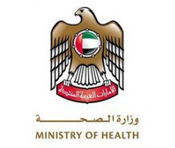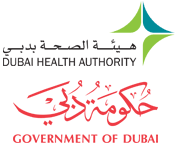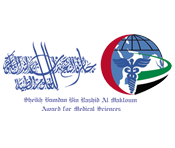
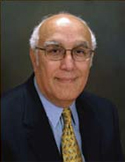
Prof. Magid Abou-Gharbia received his BS in Pharmacy & Pharmaceutical Sciences in 1971, MS in Medicinal Chemistry in 1974 from the faculty of Pharmacy, Cairo University, and PhD in 1979 from The University of Pennsylvania under Professor Madeleine Joullié followed by a two-year NIH Postdoctoral Fellowship at Medical School, Temple University. Magid joined Wyeth Drug Discovery and Development in 1982 as senior scientist and advanced through roles of increasing responsibility to Senior Vice President & Head of Chemical & Screening Sciences. In this position, he has built a strong multi-disciplinary Chemical & Screening Sciences (CSS) organization. During his tenure he has fostered a highly creative environment based on modern drug discovery technologies and enhanced chemistry skills and capabilities via the recruitment of high caliber scientists. In his current role he oversees Wyeth’s Chemistry and Screening Discovery research efforts of over 500 scientists at the four Discovery research sites in Collegeville, PA; Princeton, NJ; Pearl River, NY, & Cambridge, MA and 150 chemists at GVK Bio in Hyderabad, India.

He is Research Director at the French Centre National de la Recherche Scientifique (CNRS), attached to the Institut des Biomolécules Max Mousseron (IBMM, http://www.ibmm.univ-montp1.fr) and currently on secondment to Idenix Pharmaceuticals (http://www.idenix.com) in Montpellier (France). His research interests are the design, synthesis and study of nucleoside analogues and nucleotide prodrugs as potential antitumor and antiviral agents, fields in which he published more than 300 papers and has many patents. He is co-inventor of telbivudine (Tyzeka®, Sebivo®), marketed by Novartis (http://www.novartis.com/) for the treatment of chronic hepatitis B. He was one of the founders of the International Society of Nucleosides, Nucleotides and Nucleic Acids (http://www.is3na.org/) and currently Elected President. Dr. Gilles Gosselin was the Award winner of:
- the 1999 International Prize of the Belgian Science Pharmaceutical Society (http://www.bgfw.be/e/default.htm),
- the 2010 International Prize Charles Mentzer of the French Société de Chimie Thérapeutique (http://www.sct-asso.fr/articles.php?lng=fr&pg=63)
- and the 2012 « European Inventor Award 2012, category: Research » (http://www.epo.org/news-issues/european-inventor.html).
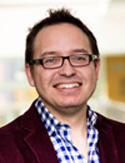
Paul Townsend (PT) is Associate Dean and Theme Lead for Personalised Therapy at the University of Manchester Faculty of Medical and Human Sciences. His research lies in the study of cellular stress and survival mechanisms in three transnationally relevant models: cardiac myocytes undergoing ischaemic/reperfusion injury, bone cell homeostasis and cancers. The protective role of Urocortin in the heart following exposure to ischemia/reperfusion injury has been a major component of this research. Along with the collaborators, PT has recently begun to apply this extensive experience of Urocortin biology and survival mechanisms to the field of chondrocyte homeostasis. PT previously held the chair of Molecular Cell Biology and Deputy Director of Cancer Sciences at the CRUK Centre at the University of Southampton. Following relocation to Manchester in 2013, he has continued to be highly active in research, maintaining a strong track record of recent publications and generating over £6.5million in research income from BBSRC, EPSRC, MRC, charities and industry including a senior role in the recently £12.8m MRC funded Manchester Centre for Clinical Proteomics. PT currently helps strategise the BHF translational research committee in addition to consulting for industry, reviewing grants for RCUK and papers for internationally leading journals. PT was a cofounder of Karus Therapeutics in 2005, which is an Oxford based biopharmaceutical company, focused on delivering novel small molecules for cancer, inflammation and other chronic diseases. Since launch the company has raised multiple millions GBP in VC funding with a recent investment, including a first tranche of £4.9m ($7.6m), which will be used to advance the company's proprietary PI3K-p110d/ß and HDAC6 inhibitors through early efficacy trials.
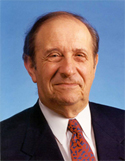
Dr. Stanley A. Plotkin is Emeritus Professor of the University of Pennsylvania and Executive Advisor to Sanofi Pasteur. Until 1991, he was Professor of Pediatrics and Microbiology at the University of Pennsylvania, and Professor of Virology at the Wistar Institute and at the same time, Director of Infectious Diseases and Senior Physician at the Children’s Hospital of Philadelphia. In 1991, Dr. Plotkin left the University to join the vaccine manufacturer, Pasteur-Mérieux-Connaught, where for seven years he was Medical and Scientific Director, based at Marnes-la-Coquette, outside Paris. The same company is now named Sanofi Pasteur. He has been chairman of the Infectious Diseases Committee and the AIDS Task Force of the American Academy of Pediatrics, liaison member of the Advisory Committee on Immunization Practices and Chairman of the Microbiology and Infectious Diseases Research Committee of the National Institutes of Health. Dr. Plotkin received the Bruce Medal in Preventive Medicine of the American College of Physicians, the Distinguished Physician Award of the Pediatric Infectious Diseases Society, the Clinical Virology Award of the Pan American Society for Clinical Virology, and the Marshall Award of the European Society for Pediatric Infectious Diseases. In June 1998, he received the French Legion of Honor Medal, in June 2001, the Distinguished Alumnus Award of the Children’s Hospital of Philadelphia, the Sabin Gold Medal in May 2002, and in September 2004 the Fleming (Bristol) Award of the Infectious Diseases Society of America. He was elected to the Institute of Medicine of the National Academy of Sciences in 2005. Dr. Plotkin holds honorary degrees from the University of Pennsylvania and the University of Rouen (France). A lecture in his honor has been established at the Pediatric Academic Societies annual meeting. His bibliography includes over 600 articles and he has edited several books including the standard textbook on vaccines. He developed the rubella vaccine now in standard use throughout the world, and has worked extensively on the development and application of other vaccines including polio, rabies, varicella, rotavirus and cytomegalovirus.

Professor Ian Frazer AC was trained as a renal physician and clinical immunologist in Edinburgh Scotland. In 1991, along with Chinese colleague, Dr Jian Zhou, he developed the virus-like particle technology which has become the basis of vaccines to prevent cervical cancer. Dr Frazer has recently been appointed as CEO and Director of Research of the newly created Translational Research Institute in Brisbane, Australia. He pursues research on skin cancer and on immunotherapy for cancer.
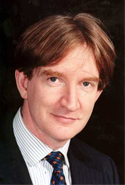
Adrian Hill trained in medicine at Trinity College Dublin and the University of Oxford, qualifying in 1982. He undertook a DPhil with Sir David Weatherall and John Clegg at the MRC Molecular Haematology unit on the molecular population genetics of thalassaemia in Pacific Islanders. Following further clinical posts in London he returned to the newly opened Institute of Molecular Medicine in 1988 to study genetic susceptibility to malaria as a Wellcome Trust Senior Fellow. In 1995 he was awarded a Wellcome Trust Principal Research Fellowship and in 1996 the title of Professor of Human Genetics. He participated in the founding of the Wellcome Trust Centre for Human Genetics in 1994, and in 2003 co-founded the Oxford Centre for Clinical Vaccinology and Tropical Medicine, which he now chairs. In 2004 he participated in the restructuring of the Edward Jenner Institute for Vaccine Research and in 2005 was appointed director of the new Jenner Institute. He is a Fellow of the Royal College of Physicians, of Magdalen College, Oxford, and of the UK Academy of Medical Sciences. Dr Hill’s detailed analyses of HLA polymorphism and malaria susceptibility in African children led to an interest in vaccine development, particularly assessing T cell-inducing vaccines against malaria. In murine studies he identified the enhanced T cell immunogenicity of non-replicating poxviruses as boosting agents in vaccination protocols. This led to phase I clinical trials of both DNA and MVA vaccines for malaria starting in 1999. His group showed the first T cell mediated protection of human vaccinees by using DNA-MVA and fowlpox-MVA prime-boost regimes against malaria.
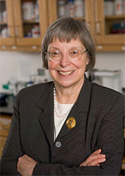
Dr. Harriet L. Robinson, Senior Vice President for Research and Development at GeoVax Inc., a biotech company specializing in the development of HIV/AIDS vaccines, has a multi-protein clade B DNA/MVA vaccine in phase 2a clinical trials through the US HIV vaccine Trials Network (HVTN). The vaccine was developed in Dr. Robinson's former laboratory at the Emory Vaccine Center in collaboration with Dr. Bernard Moss's laboratory at the US NIH and researchers at the US Centers for Disease Control and Prevention. The vaccine DNA is used to prime the immune response and the recombinant MVA to boost the immune responses. The recombinant MVA can also be used to prime and boost the immune response. Dr. Robinson co-founded GeoVax, which licensed the vaccine, to facilitate taking the vaccine from the research laboratory to clinical use. Dr. Robinson, former Asa Griggs Candler Professor of Microbiology and Immunology at Emory University and Chief of the Division of Microbiology and Immunology at the Yerkes National Primate Research Center, is internationally recognized for her work on HIV/AIDS vaccines, her pioneering studies on the use of recombinant DNA for vaccination and her seminal studies on insertional mutagenesis and oncogene transduction in retroviral induced cancers. She received her Ph.D. from the Massachusetts Institute of Technology and her post doctoral training at the Virus Laboratory, University of California Berkeley. Dr. Robinson is active on several Editorial Boards and has consulted for the US NIH, the US Food and Drug Administration, the World Health Organization, and the Gates Foundation.
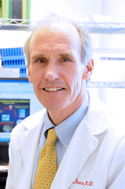
Carl June is currently Director of Translational Research at the Abramson Cancer Center at the University of Pennsylvania, and is an Investigator of the Abramson Family Cancer Research Institute. He is a graduate of the Naval Academy in Annapolis, and Baylor College of Medicine in Houston, 1979. He had graduate training in Immunology and malaria with Dr. Paul-Henri Lambert at the World Health Organization, Geneva, Switzerland from 1978-79, and post-doctoral training in transplantation biology with Dr. E. Donnell Thomas at the Fred Hutchinson Cancer Research Center in Seattle from 1983 - 1986. He is board certified in Internal Medicine and Medical Oncology. He founded the Immune Cell Biology Program and was head of the Department of Immunology at the Naval Medical Research Institute from 1990 to 1995. He rose to Professor in the Departments of Medicine and Cell and Molecular Biology at the Uniformed Services University for the Health Sciences in Bethesda, Maryland before assuming his current position as of February 1, 1999. He maintains a research laboratory that studies various mechanisms of lymphocyte activation that relate to immune tolerance and adoptive immunotherapy. The June Laboratory provides researchers with the tools they need to translate laboratory insights into safe and effective cancer therapies. The June Laboratory works with University of Pennsylvania faculty members interested in moving biologically-focused research ideas into clinical trials. In addition, the June Laboratory has a cadre of faculty researchers focused on developing ways to enhance the ability of the natural immune system to recognize and eliminate tumor cells.
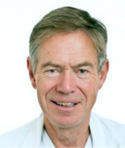
Prof. Olle Ringden is a Senior Professor in Transplantation Immunology at the Karolinska University Hospital in Sweden. After having received his MD and PhD degrees from the Karolinska Institute, he commenced a postdoctoral stay at the Fred Hutchinson Cancer Research Center in Seattle, USA in association with Nobel Laureate Donnal Thomas, where he was introduced to the fundamentals of transplantation biology. After his return to Karolinska he established a stem cell research laboratory, where he amongst other achievements, pioneered allergenic hematopoietic stem cell transplantation for Sweden and initiated seminal stem cell research. In particular, several immunosuppressive therapies have been developed to facilitate peripheral blood stem cell transfer from unrelated donors.
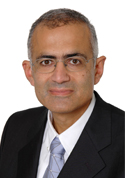
Moustapha Kassem is a professor of endocrinology at the Faculty of Health Sciences, University of Southern Denmark, a consultant endocrinologist at the University Hospital of Odense (OUH), Odense, Denmark, adjunct professor of Stem Cell Biology, Faculty of Health Sciences, University of Copenhagen, Copenhagen, Denmark and visiting professor at Stem Cell Unit, Department of Anatomy, Faculty of Medicine, King Saud University, Riyadh, KSA. Moustapha Kassem received his medical degree from Cairo University, Egypt and post-graduate training in Internal Medicine and Endocrinology in Denmark and USA. He obtained his PhD degree and DSc degrees from the University of Aarhus, Denmark. Moustapha Kassem has extensive experience with research with human bone marrow derived skeletal (mesenchymal) stem cells (MSC) and their osteoblastic differentiation. Professor Kassem has received several awards both nationally and internationally and he has recently received the prestigious Marie and August Krogh award (2012) from the Danish Medical Association. Moustapha Kassem has published around 250 original papers ,reviews and book chapters in the area of stem cell biology, osteoporosis and metabolic bone diseases.
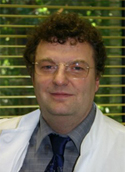
Prof. Hescheler is Chairman and Director of the Institute of Neurophysiology at the University of Cologne. He has been working with embryonic stem cells of the mouse for over 20 years. Beginning with studies on cellular signal transduction, he has defined many important basic aspects both of fundamental research and of clinical applications. He was the first scientist worldwide to perform electrophysiological experiments on stem cells thus pioneering the establishment of stem cell research for application in transplantation medicine. In 2002 he was the first scientist in Germany to obtain permission to work with human hmbryonic stem cells. In March 2004 he was appointed coordinator of the European Consortium FunGenES (Functional Genomics of Engineered Embryonic Stem Cells) followed by CRYSTAL (Cryobanking of Stem Cells for human therapeutic application) in 2005, ESNATS (Embryonic stem cell-based novel alternative testing strategies) in 2007 and DETECTIVE (Detection of endpoints and biomarkers of repeated dose toxicity using in vitro systems) in 2011. He is also coordinator of the BMBF consortium “iPS and adult bone marrow cells for cardiac repair”, which started work in March 2009. In 2005 he founded the German Society for Stem Cell Research. He is a member of numerous editorial and reviewing boards.
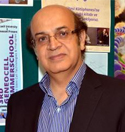
Karim Nayernia is an alumnus of the University of Göttingen, where he had defended his dissertation in 1993. He worked at the university until 2006,and received his Professorship (Habilitation) in Molecular Human Genetics). In 2006, he was appointed as Professor of Stem Cell Biology at the Newcastle University Institute of Human Genetics. In 2009, he created human sperm-like cells from male stem cells in the laboratory for the first time. Previously, in 2006, he used sperm created from embryonic stem cells to impregnate mice. The mice produced seven pups, although one died and the other six had health problems. His works were reported by several news agencies: http://news.bbc.co.uk/2/hi/health/5166462.stm http://news.bbc.co.uk/2/hi/8138963.stm http://www.guardian.co.uk/science/2009/jul/08/sperm-grown-stem-cell-fertility http://www.guardian.co.uk/science/2007/apr/13/cancer.stemcells?INTCMP=SRCH Currently , he is studying and working on different projects in the field of Personalized Medicine.

Prof. Druker earned both his BS in chemistry and MD from the University of California, San Diego. He completed internship and residency in internal medicine at Barnes Hospital, Washington University School of Medicine in St. Louis from 1981 to 1984. He was a fellow in medical oncology at Dana-Farber Cancer Institute, Harvard Medical School from 1984 to 1987. Prof. Druker is a physician-scientist at the Oregon Health & Science University. He is the director of OHSU Knight Cancer Institute, JELD-WEN Chair of Leukemia Research, and professor of medicine. In 2009 he won the Lasker Clinical Award and the Meyenburg Cancer Research Prize for his influential work in the development of STI571, commonly known as Gleevec, for the treatment of chronic myeloid leukemia (CML). Dr. Druker is an investigator of Howard Hughes Medical Institute (HHMI), and was elected to the Institute of Medicine of National Academies in 2003, the American Association of Physician in 2006, and the National Academy of Sciences in 2007. In addition to the Lasker and Meyenburg awards, he was presented the Hope Funds Award of Excellence for Clinical Research in 2009.
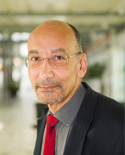
Professor Moustapha Hassan completed his M.Sc. in Toxicology at Alexandra University, Egypt, and received his Doctoral Degree from Uppsala University, Sweden, in 1987. He was made Associate Professor of Experimental Oncology at Karolinska Institutet in 1994, and became Professor of Experimental Hematology and Experimental Cancer Medicine in 2005. He is currently Director of the Preclinical Laboratory at Karolinska University Hospital-Huddinge, Stockholm, Sweden and Professor of Transplantation Research at Karolinska Institutet-Huddinge, Stockholm, Sweden. His research focuses on personalized medicine, nanomedicine and transplantation related complications, and he is the inventor of liposomal busulfan.
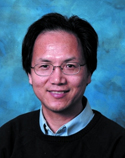
Professor Wei Duan graduated with a MD from Shanghai University of Chinese Medicine and obtained his Ph.D. in Biochemistry and Molecular Biology at University of Melbourne in 1991. He is currently a professor of cancer therapeutics at Deakin University School of Medicine in Melbourne, Australia.Prof. Duan has published more than 140 original research papers and review articles in peer-reviewed journals with an h-index of 26. His main research interest is the application of aptamer technology in targeted cancer drug delivery and molecular imaging. His work is supported by grants from National Health and Medical Research Council in Australia and Australia-Indian Strategic Research Fund, Victoria Cancer Agency, and CASS Foundation.
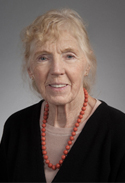
Prof. Ingegerd has been involved in tumor immunology since her student days at the Karolinska Institute when she was part of the team which discovered that polyoma virus encodes a target for a tumor-directed immune response (Cancer Res.21,3289,1961). After having developed a colony inhibition assay to analyze tumor immunity in vitro (Nature 208,652,1965;Exp.Cell Res40,212,1965; Science 156,981,1967), She published together with Karl Erik Hellstrom some of the first evidence for cell-mediated and humoral immunity to a variety of human cancers (PNAS 60,1231,1968; Nature 220.1352,1968; Int.J.Cancer 7,1,1971). Subsequent studies provided some of the first evidence of the role of co-stimulation in the induction and maintenance of tumor immunity (Cell 71,1093,1992). Most of her most recent activity is in the area of tumor diagnostics, focusing on ovarian carcinoma. Their group constructed ELISA assays specific for mesothelin (PNAS 96,11531,1999) and HE4 (Cancer Res. 63,3695,2003), two of the most promising new markers for such tumors and has demonstrated their utility (Gynecol. Oncol. 95,9,2004; The Lancet 362,1612,2003; Gynecol Oncol 125,65,2012). They also constructed assays for antibodies to these antigens and demonstrated that both patients with ovarian carcinoma and women with certain autoimmune conditions (Cancer Epidemiol,, Biomarkers, Prevention 17,1520,2008), including infertility (Cancer Epidemiol., Biomarkers, Prevention 20,1970,2011; Gynecol. Oncol., in press 2013), more often than controls have antibodies to these antigens than controls, and we showed that both mesothelin (Adv Med Exp Biol 622,15,2008) and HE4 (Cancer Letters 296,43,2010) can be detected in urine. Other recent studies indicate that a Th2 type inflammation plays a key role in the progression of HPV infected cells of cervix uteri to invasive cervical carcinoma (Gynecol. Oncol. epubl July 22,20112). The proposed studies on samples from patients with infertility or ovarian cancer for several antigens that are expressed in normal and neoplastic ovary, as well as the corresponding antibodies are likely to improve early diagnosis as well as insight to improve therapy and the chicken model provides a unique opportunity to test hypotheses relating to the role of antigens, antibodies and inflammation in the etiology and progression of ovarian cancer.
